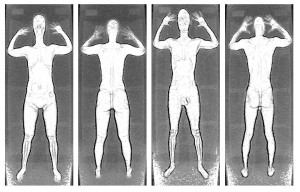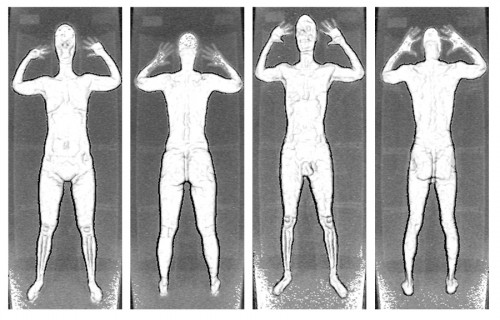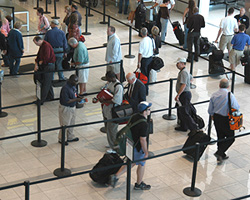Here’s a link to airlines I have learned of – so far – that are waiving change fees and making other accommodations for travelers going to and from Boston.
If you hear of others, please send information along and I will update through the evening.
Here’s a link to airlines I have learned of – so far – that are waiving change fees and making other accommodations for travelers going to and from Boston.
If you hear of others, please send information along and I will update through the evening.

There’s been a flurry of news – some real, some fussed-up – about concerns and confrontations about body-scanners and enhanced pat-downs at airports.
Need to catch up?
This Reuters article explains the concerns pilots have about stepped up screening at U.S. airports.
On his NPR blog, Shots, Richard Knox does a great job of laying out the difference between, and the debate about, the safety of the new scanners.
The TSA blog posted video – and the original radio interview – concerning a young woman who claims she was cuffed to a chair at the Fort Lauderdale International Airport.
This fellow caused a hubbub at San Diego International Airport by refusing the pat-down after deciding to opt-out of the scanning machine.
And there’s a group trying to organize Opt Out Day at airports nationwide on November 24, 2010.
Study up. Things are just going to get curiouser from here…
I spent much of the day yesterday writing a column for MSNBC.com about the pros and cons of airport body scanners.

That column, which posts Thursday, January 14th, 2010, focuses on some of the privacy issues surrounding the “virtual strip search” aspect of these machines.
I didn’t have room for in the story for the comments of airport terminal planner and designer, Pat Askew, from Perkins+Will.
We don’t think of it right away, but Askew points out that these big, expensive body scanner machines will not only change the TSA procedures, but also have an impact on the look and layout of present – and future – airport terminals.

Askew says:
So next time you’re Stuck at the Airport, take a good look around. That great piece of public art in the terminal may soon need to make way for a hulking piece of security equipment.
A few weeks back my Well-Mannered Traveler column on MSNBC.com was about ethnic profiling at airports.
A great many people (328 last time I checked) posted comments in response to that column and most of those folks seem to believe that ethnic profiling is a good and useful way to thwart terrorism.
But according to this article in today’s (Feb 2nd) New York Times, it’s not.
What would work better? Math.
Specifically, says William H. Press, a computational biologist and computer scientist at the University of Texas, Austin, something called “square root sampling.”
“We have been told that strong profiling will somehow find and siphon off the worst offenders and we’ll be safe,” Dr. Press said. “It’s not true. The math does not support that.”
See what the math does support in Sandra Blakeslee’s New York Times article: Math Backs Limited Profiling in Airport Screening and tell me what you think.
